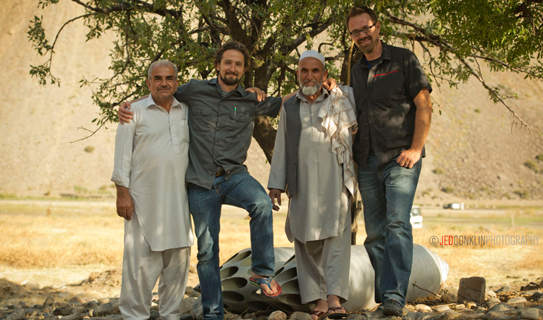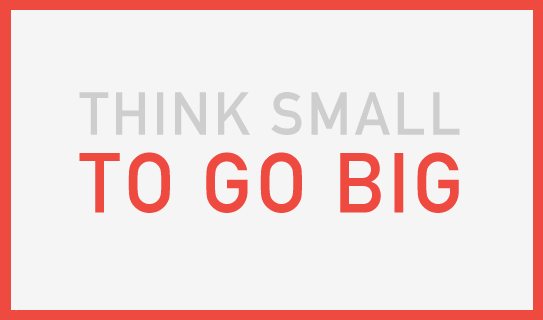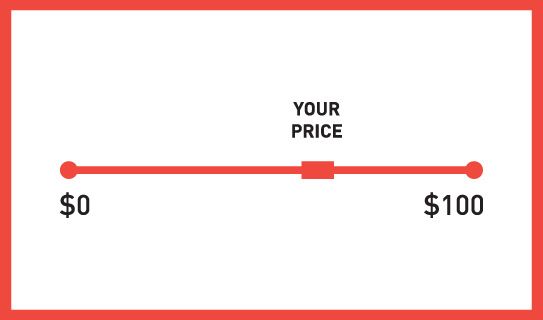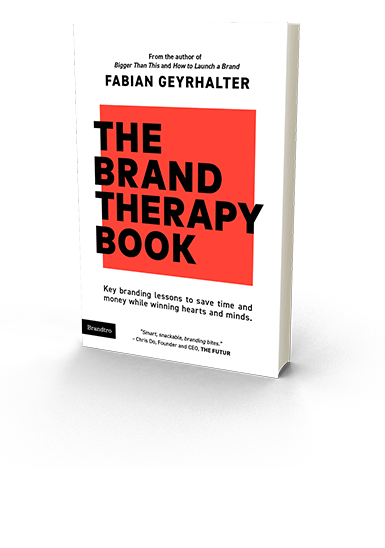Tag Archives: social enterprise
How Combat Flip Flops Used its Brand Story to Become Bigger Than its Products
The full article of below’s excerpt was first published on Startup Nation on 04/18/18.
While writing my last book, I reached out to Matt Griffin, CEO of Combat Flip Flops, to answer one specific question: How did regular flip-flops turn into objects that manufacture peace through trade?
While on duty in Afghanistan, Griffin, then a U.S. Army Ranger, stumbled upon an Afghan combat boot factory that also created flip-flops for soldiers for when they were taking off their boots to pray. Feeling empathy for the people he met, he immediately knew he wanted to bring those flip-flop designs home with the goal of creating jobs and funding education in war-torn countries, such as Afghanistan.
There is no significant product innovation, but there is a story that is so much bigger than flip-flops: one that leads to sales.
“Other than materials and details, there isn’t anything special about our product. They’re flip-flops and shoes. The story leads the way into our ecosystem, then the product enables more people to tell the story. The cycle goes round and round–educating little Afghan girls throughout the process,” Griffin said.

The cause and his strong belief is indeed the foundation of a thriving business.
If you are an entrepreneur that aches to create a cause-based brand or transform an existing brand into one that does more than sell products or services, but positively affects mankind, Matt has some advice for you.
I asked him about the top challenges such entrepreneurs may face, and below are his top three pieces of advice on how to overcome them:
- Commit fully: Question yourself. Are you willing to go all in? Give up all of your comforts and security to take on the challenge?
- Prepare for no funding: As much as people will agree with your “nice” idea and mission, getting them to separate with money to support you is difficult. You have to prove it with your own money before they give up theirs.
- Craft a story that works for your audience: For example, getting the Western Consumer to be empathetic with the challenges felt in developing nations, then inspiring them to action. Empathy is difficult these days.
Don’t be discouraged, as you are dealing with a new generation of consumers willing to commit to you and your brand. Both millennials and Generation Z consumers strongly skew toward brands with a bigger mission.
Given the rise of the BOGO movement (buy-one-give-one) through TOMS and Warby Parker, the path is clear for new ventures with a social cause.
“TOMS will forever be known as the brand that made conscious capitalism a ‘thing.’ If they can make it work and are truly helping others, good on them. The one-for-one model works at scale and it’s tough for a lot of competition to get to that point. It’s not impossible, though,” Griffin said of such trends.
As my time with Matt was running out, I wanted to know what other cause-centric brand resonated with him that we should get to know, and why? He noted saffron distributor, Rumi Spice, which was founded by a female soldier and is now the single largest employer of Afghan women.
“They help Afghan farmers directly export product to the U.S. market, putting money into the hands of the farmers instead of middlemen,” Griffin said.
Stories like the one of Combat Flip Flops are awe-inspiring to me as a brand builder, and they also push us to think outside of our comfort zone, and outside of the notion that only products based on tech and innovation can turn into admired brands in today’s entrepreneurial age of disruption.
3 Intrinsic Branding Lessons All Startups Should Learn – From The Store Next Door
This article was originally published on Forbes on 11/25/16.
As a brand strategist, I mostly work with new businesses on establishing themselves as brands – as quickly and as honestly as possible. With the growing awareness for Small Business Saturday, I felt it was time to analyze how small businesses brand themselves in an organic grassroots manner – and how startups can learn from these businesses that are rooted in localism and fueled by brand advocates.

Our view of what a small business is has changed over the past decade. The financial crisis of 2008 led to uncertainty and unemployment, which led to people crafting and cooking again and, not so coincidentally, preferring local eateries and buying artisanal products. Many of these products were passionately created by people who had just one product and little to no business background. The best (and often only) way for them to market was by talking to their neighbors. At the same time, a new generation was becoming fed up by corporate America.
To gain insight on all matters local, I sought the opinion of a fellow local entrepreneur who is an expert on the subject, DW Ferrell. I met Ferrell locally when we shared the stage as panelists at the California Women’s Conference a few years ago, and his name popped in my head automatically when I started thinking about this topic. Ferrell was a retail strategist for major brands and shopping centers before veering in the complete opposite direction. He is co-founder of a social enterprise startup, a campaign community and platform marketplace for local makers and merchants that works to accelerate the local marketplace. Needless to say, he lives and breathes this subject matter.
I translated our lengthy and insightful conversation into three key lessons on how a local mindset can propel your startup into a meaningful and dynamic brand that remains true to itself:
1. Think Community First
Having the right mindset is key. Most brands have a community manager who, more often than not, turns into a social media PR machine who spends half their time nurturing social followers, and the other half putting out social fires. But that’s not the community we’re referring to. Successful local businesses are deeply involved with the city and its initiatives, with community events and planning. They want to contribute as much to the community as they are benefiting from it. If startups apply this desire to connect with their followers, share experiences, build upon them and use their shared values for the greater good, their brands will win big.
The next time you make a sale, think about what you can give in return (besides the product). If the customer isn’t expecting anything additional, a small unexpected gesture will lead to them seeing you as a friend, and that’s the basis of any relationship. When you repeat that step and that thinking, you create a community.
2. Define Your Vernacular
Just like any brand, a small local business stands for something and has to create meaningful values. These values need to embody the values of not only their customers and clients, but also the community and their contributions to it. “It isn’t enough to follow traditional brand marketing principles that are based on ‘push marketing.’ Instead, you and the company have to intentionally ‘live the story’ that embodies the brand’s values,” Ferrell said during our conversation. As Ferrell asks, “How will you align profit and purpose? How will your model support your mission?”
You have to create your vernacular and define your terms. When you define it and share it publicly with your community, you can ensure that you have the right community, as members will celebrate your values if they share your views. Furthermore, this forces you to hold yourself accountable. You’re saying: This is our ideal, our identity. Does it resonate with you? Great. We now need to be true to you, because you are behind us.
3. See Your Competition As An Advertisement
Your “biggest” competitor is not your enemy.
This lesson may be a bit tough to swallow, but you are nothing without a supportive network. And when you launch locally, that very network includes your competitors. In the small business world, the local coffee shop supports the other local coffee shop to leverage their unity and create a network that only has one enemy – in this example, Starbucks. If the small ones stick together they generate more word of mouth about each other and hence sales while forming a support system as a side effect.
The only thing that will hold you back from that handshake with your competitor is fear. And as Franklin D. Roosevelt once said: “Only thing we have to fear is fear itself.”
Stop fearing; instead, cross-pollinate. “Cross-market” would be the correct term, but let’s keep this local and share the love.
Go Ahead, Let Them Pay What They Want
As a new brand, what if you let the customer decide how much to pay for your offerings? Let them pay whatever they feel is fair.
A bold statement. And a great thought to ponder: What is your product really worth to your customer?

If you have a strong established brand with a trusted and emotional connection between your offering and your customer, you may be surprised by the impact this model can have. Panera Bread did it most famously: In special Panera Cares Community Cafés (based on what SAME Café has done before them) customers pay what they can, and, more importantly in this context, they pay what they want to pay.
Guess what? They make more profit.
Not necessarily more sales revenue (only 20% less than regular Panera Bread stores), but with ~2 billion media impressions alone and loyal fans instead of customers, imagine how this model can profit a new brand. The CEO of Headsets.com, Mike Faith, states (via Wikipedia): ‘Just as money-back guarantees were considered over-generous and dangerous when they were first introduced, they are almost a standard nowadays. There is no reason that trust-based pricing shouldn’t become a norm over the next decade.’
I believe there is great value in entertaining this strategy for various segments at a brand foundation level. It’s noble, yes, but further it can be used to build a truly profitable brand; one that will honestly and truthfully connect with its customers from the get-go – a brand built on trust. If you are launching a social enterprise (or feel highly socially responsible), and you have the guts, I believe there is great glory to be had.
Categories
MOST POPULAR POSTS
Recent Posts
- How to Navigate Product Launches During COVID-19
- Why You Should Give Away Your Product (And Why Swag Is Dead)
- Why Instagram Is Your Brand’s True Homepage – And 3 Ways To Turn It Into A Lead Magnet
- How Brian Scudamore, Whose Brands Are Making A Million Dollars A Day, Leads With Brand Thinking
- 5 Ingredients of a Strong Brand Foundation
Enter your email address to receive future FINIEN insights and updates.
We will use the information you provide on this form to send you insights and, at times, marketing emails about our services. You can unsubscribe at any time through a link in the footer of any email from us. For more information, please read our Privacy Policy located at the bottom of this page.
Browse Our
Free White Papers
5 Ingredients of a Strong Brand Foundation
Simply enter your email address to download.
We will use the information you provide on this form to send you insights and, at times, marketing emails about our services. You can unsubscribe at any time through a link in the footer of any email from us. For more information, please read our Privacy Policy located at the bottom of this page.
Brand Architecture Strategies for Sustainable Brand Development
Simply enter your email address to download.
We will use the information you provide on this form to send you insights and, at times, marketing emails about our services. You can unsubscribe at any time through a link in the footer of any email from us. For more information, please read our Privacy Policy located at the bottom of this page.
How to Name your New Brand Successfully
Simply enter your email address to download.
We will use the information you provide on this form to send you insights and, at times, marketing emails about our services. You can unsubscribe at any time through a link in the footer of any email from us. For more information, please read our Privacy Policy located at the bottom of this page.
How to Match Your New Brand Name with an Appropriate Domain Name
Simply enter your email address to download.
We will use the information you provide on this form to send you insights and, at times, marketing emails about our services. You can unsubscribe at any time through a link in the footer of any email from us. For more information, please read our Privacy Policy located at the bottom of this page.
How to Gain Swift Stakeholder Buy-in During the Early Stages of your Brand Creation
Simply enter your email address to download.
We will use the information you provide on this form to send you insights and, at times, marketing emails about our services. You can unsubscribe at any time through a link in the footer of any email from us. For more information, please read our Privacy Policy located at the bottom of this page.
Creating Brands with a Purpose – When Social Impact turns into Profit
Simply enter your email address to download.
We will use the information you provide on this form to send you insights and, at times, marketing emails about our services. You can unsubscribe at any time through a link in the footer of any email from us. For more information, please read our Privacy Policy located at the bottom of this page.




